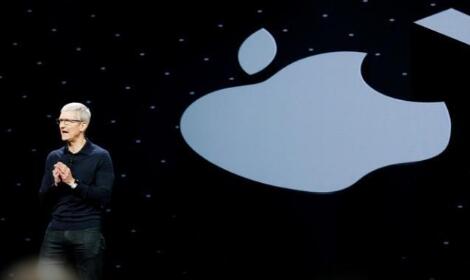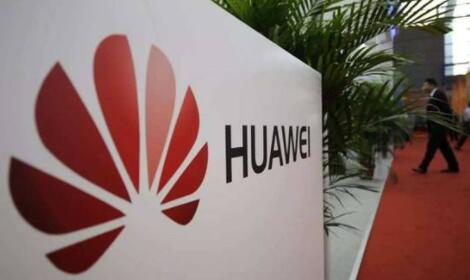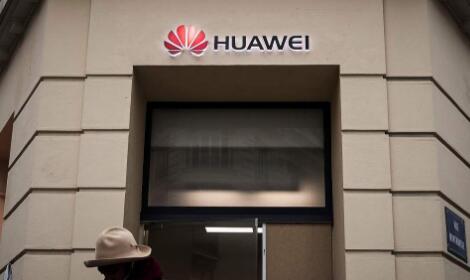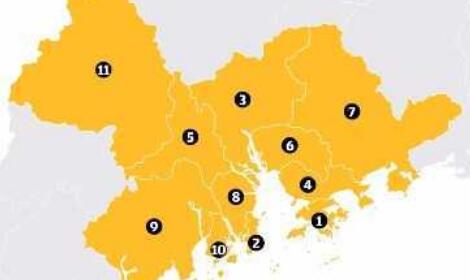中国:一个正在崛起的,脆弱的全球大国 [新加坡媒体]
中国已不在是新兴市场一部分;也不在属于金砖国家,更不在中印联合体之内。中国必须要以自己的方式来认识自己。这个星球正面临许多艰巨的问题,至少在21世纪头四分之一的时间里,几乎所有重大问题均与中国相关,而且,这种状况很有可能一直持续到本世纪中叶。
Defining China:A rising, fragile global power
中国:一个正在崛起的,脆弱的全球大国。
Jean-Pierre LehmannFor The Straits
PUBLISHED
JUL 5, 2016, 5:00 AM SGT
海峡时报特约作者:让·皮埃尔·莱曼
China is no part of the emerging market;nor Brics, nor Chindia. China is itself, and has tobe understood on its own terms.
中国已不在是新兴市场一部分;也不在属于金砖国家,更不在中印联合体之内。中国必须要以自己的方式来认识自己。
Among the many daunting questions theplanet is facing, the most important for at least the first quarter of the 21stcentury, in all likelihood extending to the first half, is the Chinesequestion.
这个星球正面临许多艰巨的问题,至少在21世纪头四分之一的时间里,几乎所有重大问题均与中国相关,而且,这种状况很有可能一直持续到本世纪中叶。
Will China's peaceful rise succeed, orwill it fail? How will Chinese society evolve? How will the world adapt to aChina rising not only economically, but also geopolitically and militarily?
中国的和平崛起能成功么?它会失败么?中国社会将如何发展?中国崛起不仅仅是经济上的,还包括地缘政治和军事上的,为此世界将如何适应?
There is an understandable visceral desireto be optimistic. "Things will be okay"; "All that the Chinesereally want is to be economically successful"; "Maoism has beenmetamorphosed into materialism". There is, of course, some of that, butcomplacency and wishful thinking are dangerous. There is an imperative to facereality with a hard, analytical look.
有一种可接受的发至内心的乐观期盼——“事情终归会好起来的”;”中国人真正想要的是经济上的成功”;“毛泽东主义已转变成唯物主义“。当然,这其中有些东西,除了自满和一厢情愿的想法比较危险外。还有必要应以一种坚实的客观的态度来面对现实。
The first essential question is: What isChina? Into what kind of conceptual framework does China fit? Gettingone's bearings right is the sine qua non imperative for successful navigation.What continues to strike me is how often we seem to be getting it wrong.
How oftendoes one read, even in supposedly respectable publications, phrases like"China and other emerging markets"? China is not an emerging market;or certainly, that is not the term that most usefully defines it at present. Itis not in any way like "other" emerging markets, whatever that maymean. China is China.
一个首要的问题:中国是什么?要以何种框架概念来形容中国?追求自身的正确行为即是走向成功的必要条件。我们为何总是遭到挫折,就是因为我们经常假装把它当成是错误的。
你经常阅读么?即使世间流传的一些好书,比如“中国与其他的新兴市场”?中国已不算是新兴市场了;确切地说,已经没有哪种术语能确切来形容目前的中国了。它跟“其他”的新兴市场已完全不同,无论这意味着什么,因为中国就是中国。
STILLUSTRATION: MIEL
While all countries from tiny St Kitts& Nevis to giant China are sui generis, China is sui generis in capitalletters. It is analytically misleading to put it into some artificial, even ifhandy, collective "genre". Terms such as "China and otheremerging markets" distort: China is not just another emerging market.
无论是从小小的圣基茨岛还是到幅员辽阔的中国,所有的国家都是独一无二的,但中国俨然是其中的楚翘别具一格。可中国总被曲解,而[size=14.3999996185303px]被归为异类,更甚的是,还被说成具有集体主义“风格”。比如有种说法:“中国和其他新兴市场(潜台词:中国不同于其他新兴市场)”被歪曲成:中国不是另一个新兴市场。
The sloppiest categorisation of China isthe catchy but meaningless term "the Brics". Brazil, Russia, India,China and South Africa have very little in common. In no way do they constitutea collective entity - whether culturally, politically, socially, economically,demographically or geopolitically. The Brics buzz word stuck because it was asubstitute for thinking.
把中国简单的归类成金砖国家是很好记,但却毫无意义。巴西、俄罗斯、印度、中国和南非几乎没有什么共同点。无论是在文化、政治、社会、经济、人口、还是地缘政治上,[size=14.3999996185303px]怎么也不会想到会把他们联想到一起去。“金砖国家”这个词被滥用了,因为它变成了一种思维定势。
From a narrower Asian continentalperspective, there was a (fortunately short-lived) fashion for the term"Chindia", to refer to China and India, aka the "two Asiangiants". Though there are things China and India share, hardly surprisingin the light of their huge common border, they are fundamentally two very differentspecimens with two very distinct histories - China became a unified centralisedstate in the 2nd century BC under the Qin Dynasty, India not until the MughalDynasty some 18 centuries later.
从一种狭义亚洲大陆观来看,有一个时髦的名词叫“Chindia”(还好这词不算长),“Chindia”指的是中印两国,又名“两位亚洲巨人”。尽管中印共同拥有某些东西,鉴于他们个共同拥有的漫长的边境线,这简直令人不可思议。由于他们的历史各不相同,所以他们从根本上就是两个完全不同的两个类型。中国早在公元前2世纪就由秦朝统一了全国,而印度直到18世纪才由莫卧儿王朝实现了统一。
In the modern era, China was frequentlyattacked and invaded, but it did not become a Western (or Japanese) colony.British colonialism in India lasted close to two centuries. One could go on.
中国在近代虽频繁地受到攻击和入侵,但它却并没有成为西方(或日本)的殖民地。而英国对印度的殖民统治持续了近两个世纪。谁更有前景。
An interesting and insightful aside isthat whereas China was heavily influenced by Buddhism, a religion that emanatedfrom India, and that even today in "communist" China there are an estimated250 million Chinese Buddhists, comprising some 18 per cent of the population,Buddhism has virtually disappeared from India, corresponding to a measly 1 percent of the population. China and India do not share Buddhism.
说个很有意思的题外话,中国深受来自印度的佛教影响,即使崇尚“共产主义”的中国,也大约有两亿五千万佛教徒,约占总人口18%。而印度佛教徒却少的可怜,仅占印度总人口的1%,佛教几乎快从印度消失了。佛教对于中印已无相通之处。
The first essential question is: What isChina? Into what kind of conceptual framework does China fit? Getting one'sbearings right is the sine qua non imperative for successful navigation. Whatcontinues to strike me is how often we seem to be getting it wrong.
Furthermore, to underline Chinesediversity, there are an estimated 100 million Christians. This would make Chinathe fourth biggest Christian country in the world, after the United States,Brazil and Russia! There are more Chinese Christians than there are members ofthe Chinese Communist Party (CCP)! But it would be a bit premature to refer toChina as a "Christian country"!
同时,为强调中国的多样性,那里还有大约1亿基督徒。这使得中国成了仅次于美国、巴西、俄罗斯的第四大基督教国家。基督教徒甚至比党员还要多,但把中国看作是“基督教国家”还为时尚早.
POOR, CHINESE AND COMMUNIST?
贫困,汉语和党员
Back in the early 1970s, when I was auniversity lecturer in Britain, a sinologist friend, Jack Grey, used to prefacehis presentations by saying that "to understand China it's important toremember that it is (a) poor, (b) communist and (c) Chinese".
70年代初,当我在英国大学教书的时候,有个叫杰克格瑞的汉学家朋友,在他的演讲中曾说道:“认识中国一定要记住,第一:贫穷,第二;共产主义,第三:汉语。
It is certainly still Chinese! Thoughthere is still poverty in China, as the world's first or second biggesteconomy, with the world's greatest number of billionaires, and a massive urbanmiddle class of at least half a billion, it is certainly not poor.
在中国当然讲汉语!尽管中国依旧有贫困存在,但它作为当今世界第一或第二大经济体,拥有世界上最多的亿万富翁,且至少有近五亿中产阶级,它肯定不穷。
Is it communist? There is the famous storythat when negotiating the return of Hong Kong, Margaret Thatcher asked DengXiaoping, "Socialism with Chinese characteristics, what does thatmean?", to which he replied, "Anything you want it to".
它是共产主义吗?在香港回归谈判期间有个着名典故,撒切尔夫人问邓小平,“中国特色社会主义是什么意思?”,他回答说:“你希望它是什么,它就是什么”。
It may be apocryphal, but it captures theessence.
这段对话可能是演绎出来的,但它抓住了实质。
China is still a totalitarian dictatorshipunder the rule of the Communist Party. With tensions between the US and China,especially in the South China Sea, there is talk of a "new cold war".
中国仍由共产党统治。随着中美关系日趋紧张,尤其在中国南海,出现了“新冷战”论。
But China not at all resembles the oldSoviet Union. Remember all those millions and millions of Soviet touristsflocking to France, Italy, Japan, Hong Kong, South Korea …? Of course not. Theonly Soviet tourist destination was well behind the Iron Curtain: in Crimea!
What about all those sons and daughters ofsenior Politburo members going in droves to study in American Ivy Leagueschools, as well as in Europe and Australia? Again, there was none: It was theCold War! One might also mention those billions of US dollars (trillions ofyuan) invested by Chinese firms and wealthy individuals throughout the planetin mines, plantations, manufacturing sites, real estate, railways, ports and soon. And, in passing, it is difficult to remember all those Soviet people buyingEuropean luxury goods and French premium wines like there were no tomorrows.
但中国与前苏联有着根本不同,有谁记得那些数以百万计蜂拥至法国、意大利、日本、香港,韩国的苏联游客么…?当然没有.苏联唯一旅游目的地是在铁幕的后方:克里米亚!谁曾看到有成群的高官子女跑去美国常春藤,欧洲和澳大利亚去学习么?还是没有,这才这是冷战!或许有人也提到有些中国公司和富翁斥资数十亿美元在这个星球上四处去投资矿山、农场、制造业、房地产、铁路、港口等诸如此类的东西。而在这过程中,谁会记得有哪些苏联人像没有明天似的去欧洲法国购买奢侈品和优质葡萄酒。
The "new cold war" scenario iswidely amiss. So, what is China?
“新冷战”的说法漏洞百出。那么,中国是什么?
THE ESSENCE OF TODAY'S CHINA
当今中国的本质
The best (not suggesting it's perfect) wayI can think of is to define China as a rising global power with greatambitions, but fragile in many ways.
我能想到的最好的方式是把中国定义成一个具有野心的崛起的全球大国,但它在许多方面却是脆弱的。
A rising global power is beyond debate. Itis present economically in virtually every nook and cranny of the planet. Ithas a growing military arsenal and expansionary ambitions - the South China Seaand increasingly the Indian Ocean. It is a nuclear power. It has a grand vision,recently articulated in the New Silk Road - inelegantly referred to as OneBelt-One Road.
勿需辩论,这是一个崛起中的全球大国。它的经济触角目前已伸向地球的每一处角落和缝隙。在中国南海和印度洋,它的军事实力和扩张野心不断膨胀。它是一个核大国。它有一个宏伟而远大的理想,最近它提出了一个新丝绸之路计划,名曰一带一路。
But it is fragile. Its power is almostexclusively hard; its soft power is weak. It has territorial disputes withvirtually all its neighbours. The strained ties with Taiwan and Hong Kong areat the very least an irritant, possibly more. The country that it was countingmost upon to be its gateway to the European Union - a bit like Hong Kong was inthe past the gateway to China - was the United Kingdom and now it's gone andleft the EU.
但它却是脆弱的。中国的(硬)实力没那么强;软实力还很弱。它几乎与所有邻国都有领土争端。并且与台湾香港关系的紧张也成了一个不小的麻烦,没准问题还会更严重。英国可能是最有希望成为中国通往欧盟的门户,这就像曾经的香港是通往中国的门户一样,可是现在英国已脱离欧盟,希望不在了。
China is rich in gross domestic product,but poor in resources, compared to its needs.
中国的GDP虽耀眼,但与他的需求相比资源却很匮乏。
To cite the most critical example: Chinahas 18 per cent of the world's population, but 7 per cent of its arable land.Ensuring not just food supply but equally importantly food security is anobsession in Beijing that is absent in the capitals of the other global powers,notably Washington.
举个最关键例子:中国有占世界18%人口,而耕地却只占世界的7%。北京不仅要注重食品供应,还要确保食品安全,其他全球大国的首府则不存在这方面的担忧,尤其是华盛顿。
The upcoming millennial generations,however, have experiences that are totally different in virtually everyrespect, and have different expectations.
无论怎样,在即将到来的80后时代,他们在各个方面所汲取的经验不同,期望也各不相同。
The differences are notable in respect tosiblings: A Chinese my generation is likely to have had seven or even eightbrothers and sisters, half of whom, perhaps more, died young. China iswitnessing the rise of a generation of which almost all were single children.(I strongly recommend an excellent book on this subject: Wish Lanterns: YoungLives In New China by Alec Ash.)
Whether these demographics make China moreor less fragile remains to be seen, but it certainly makes it different, addinganother layer to the sui generis identity.
这种不同体现在对兄妹间的尊重上:与我同代出生的中国人基本都有七八个兄弟姐妹,但他们当中有一半也许更多,在小时候就夭折了。而见证中国崛起的这一代人,大都是独生之女。
China is complex. It will not become lessso with time. Simplistic definitions or categorisations result in simplistic(and wrong) analysis.
这种人口结构是否会让中国变得脆弱,还有待观察,但他们肯定会让中国变得与众不同,他们对自己那种宽厚的个性升华到了另一个层次。
中国是复杂的,这种复杂不会随着时间的推移而变得微不足道。简单地去定义或分类是草率、错误的。
I am not claiming mine is perfect, but Ithink the words "rising", "global", "fragile" and"power" seem to capture the essence of what China is today.
我不是说我说的就是正确的,但我认为“崛起”,“全球”,“脆弱”和“权力”大概抓住了当今中国的本质。
Jean-Pierre Lehmann is emeritus professor of international political economy at IMD business school with campuses in Lausanne and Singapore; and visiting professor at Hong Kong University.
作者:让·皮埃尔·莱曼。IMD商学院洛桑-新加坡校区,国际政治经济学退休教授;香港大学客座教授。
版权声明
我们致力于传递世界各地老百姓最真实、最直接、最详尽的对中国的看法
【版权与免责声明】如发现内容存在版权问题,烦请提供相关信息发邮件,
我们将及时沟通与处理。本站内容除非来源注明五毛网,否则均为网友转载,涉及言论、版权与本站无关。
本文仅代表作者观点,不代表本站立场。
本文来自网络,如有侵权及时联系本网站。
图文文章RECOMMEND
热门文章HOT NEWS
-
1
他们认为,协商失败的峰会实际上符合中国的利益,而且北京的影响力将增加,因...
- 2
- 3
- 4
- 5
- 6
- 7
- 8
- 9
- 10
推荐文章HOT NEWS
-
1
这是中国中部河南省郑州的一个普通的星期六。富士康工厂大楼上空笼罩着...
- 2
- 3
- 4
- 5
- 6
- 7
- 8
- 9
- 10











